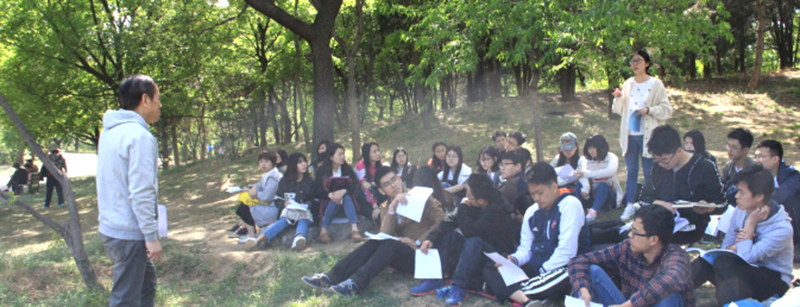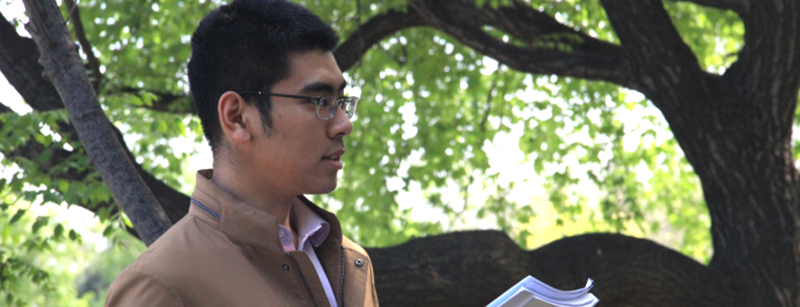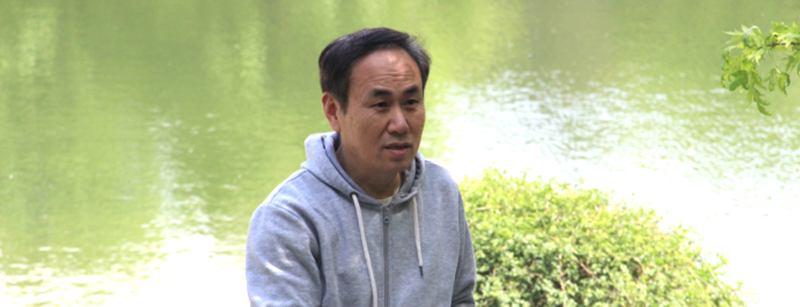On 21 April, Professor Zheng Yongliu led students of the China-EU School of Law to the colorful Beijing Botanical Garden, where they had a special outdoor teaching activity for the Legal Sociology course.

Under the clear blue sky, surrounded by flowers and a blowing breeze, both the professor and students seemed to enjoy themselves with an embrace of nature in the picture-postcard garden. The class started at around 1:40 p.m., with everyone sitting on the ground by the lakeside. The exploratory study of cultural feminism theory went on smoothly with student presentations and discussions.
To start with, the first presenter Wang Chaoqun introduced the overall theoretical structure of cultural feminism, with his interpretation of the morality dilemma experiment. The experiment was conducted by one of the representative personages, Carl Gilligan, who claims that the cultural feminism underlines the value of care ethics, in which the interpersonal relationship, children upbringing and responsibility are highly valued. To be more detailed, women do not use an indifferent and abstract way of thinking to solve the morality dilemma, Gilligan argues. Instead, most of them consider it as an interpersonal conflict. Based on the introduction, Wang brought up the topic of the relation between law and cultural feminism, elaborating the influence of cultural feminism on law. Through his presentation, students’ understanding of cultural feminism was deepened.

The second presentation was done by Wu Ziyu. She chose two different perspectives to demonstrate the characteristics of cultural feminism. The first one was the interaction of critical legal studies and cultural feminism. Namely, how the latter inherited the theoretical legacy from the former, and how it developed rapidly in the mid-1980s through its criticism on critical legal studies. The second perspective was the mutual effect between cultural feminism and dominant feminism, which was prevailing in the same era. She presented specific cases stimulating her fellow students to think more dialectically and systematically.

After the presentations, Professor Zheng guided all the other students to comment in a critical way. Studentsshared their opinions and raised questions actively, with the professor mediating the discussion to develop a strong academic atmosphere.

At the end of this class, the professor made a final summary and comment. Prof. Zheng believed that the clash of ideas is the vital source of innovation and the inexhaustible force of making progress in academia. If every scholar holds the same opinion and has no doubt at all, it will deprive the possibility of development. Thus, he hopes that there will be more discussion among researchers to improve the overall academic level of Chinese scholars. Taking the chance of this outdoor teaching class, the professor wished the students not only have a basic understanding of the development of feminism, but also learn to critically examine the previous existing viewpoints and the social reality. He encouraged the class to voice their ideas, to innovate, and to promote the progress of the whole society.

Text by Guo Baoyin and Wu Ziyu
Photos by Wang Hongye

